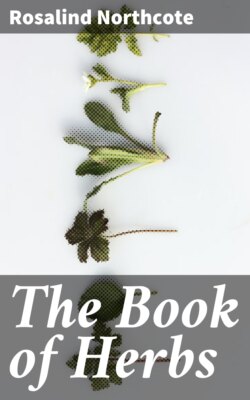Читать книгу The Book of Herbs - Rosalind Northcote - Страница 14
На сайте Литреса книга снята с продажи.
Celery (Apium graveolens).
ОглавлениеTable of Contents
This is quite without romance. The older herbalists did not know it and Evelyn says: “Sellery … was formerly a stranger with us (nor very long since in Italy itself). … Nor is it a distinct species of smallage or Macedonian Parsley, tho’ somewhat more hot and generous, by its frequent transplanting, and thereby render’d sweeter scented.” For its “high and grateful taste, it is ever plac’d in the middle of the grand sallet, at our great men’s tables, and Proctor’s Feasts, as the grace of the whole board.” But though Parkinson did not know the plant under this name, he did see some of the first introduced into England, and gives an interesting account of this introduction to “sweete Parsley or sweet Smallage. … This resembles sweete Fennell. … The first that ever I saw was in a Venetian Ambassador’s garden in the spittle yard, near Bishop’s Gate Streete. The first year it is planted with us it is sweete and pleasant, especially while it is young, but after it has grown high and large hath a stronger taste of smallage, and so likewise much more the following yeare. The Venetians used to prepare it for meate many waies, both the herbe and roote eaten rawe, or boyled or fryed to be eaten with meate, or the dry’d herb poudered and strewn upon meate; but most usually either whited and so eaten raw with pepper and oyle as a dainty sallet of itselfe, or a little boyled or stewed … the taste of the herbe being a little warming, but the seede much more.”
